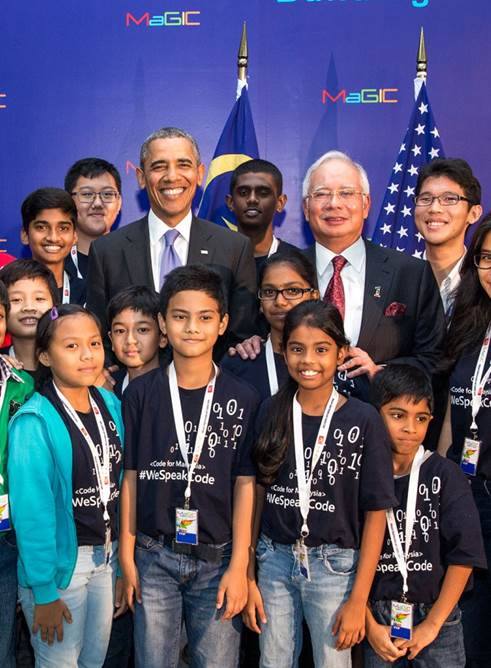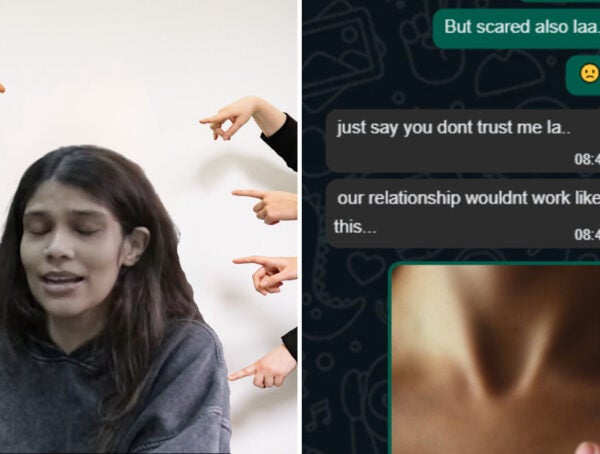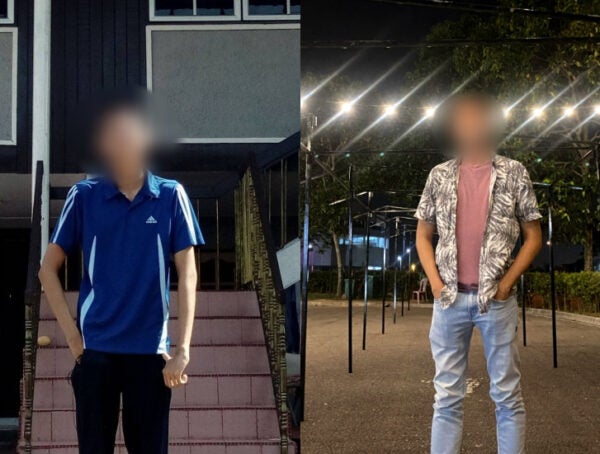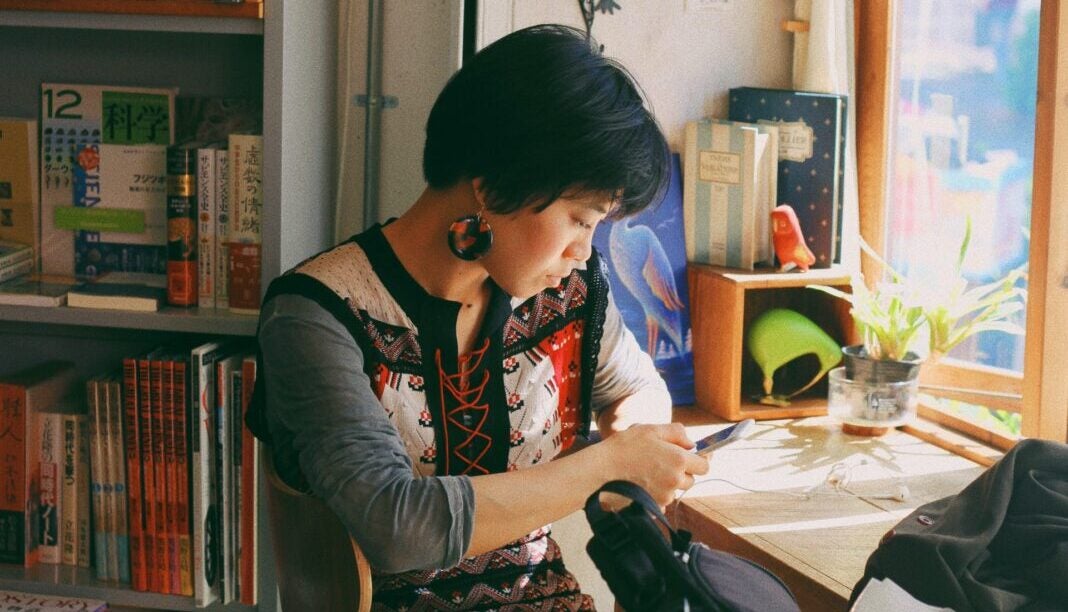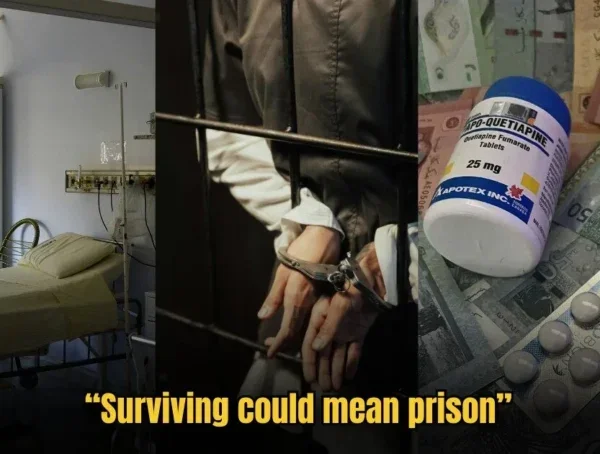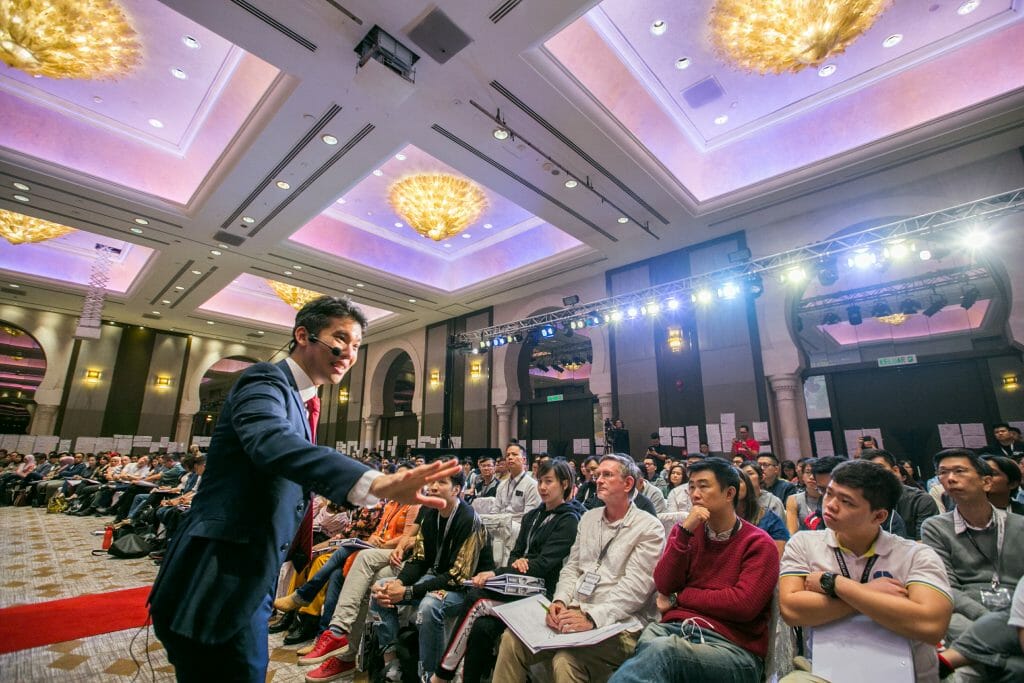
I am the founder of Thriving Talents, a company that helps people discover their potential. Through our training sessions, we help people to maximise their abilities, be more productive, profitable, and lead a more meaningful life.
Since 2012 when we were established, we have expanded our business to 41 countries — from Liberia, South Africa, to Mozambique, to Germany, Switzerland, even last year recently to South Korea. We have worked with 39 Fortune 500 companies. And I’ve had a lot of fun running this business.
But it didn’t start out that way. In fact, I went through a lot of failures before I got to this point in my life.
I went to a school that prided itself on creating Prime Ministers.
I was raised in Penang. Despite my family not having come from a wealthy background, they loved me to bits.
So my parents made sure that I got the best education, and when I did well for my Standard 6 UPSR exams, I got into a good school in Secondary.
My school prided itself on producing Prime Ministers — Tun Abdullah Ahmad Badawi was an alumni. Datuk Seri Anwar Ibrahim was one as well.
Because of that, there’s that unspoken expectation that all of us need to do well in academics, in sports, and in life.
I was under a lot of pressure to perform. And truth be told, I felt a lot of stress at the time.
Throughout my schooling years, I was bullied for looking chubby and being weak at sports. I was bullied since kindergarten up until I was 15.
People would say, “Ini orang muka senang kena bully pulak,” (This guy has a face that is easy to pick on).
 [Michael when he was 8 years old, and an x-ray of his broken kneecap]
[Michael when he was 8 years old, and an x-ray of his broken kneecap]
You know what’s the worst thing about being bullied? It’s not the hitting. It’s actually being treated like you are invisible.
During recess, the kids would come over to the table I was eating at, and sit on me.
When I reacted, they’d say “Oh, sini ada orang ka? (Oh, is there someone here?)” They treat you like you don’t exist.
In all honesty, I would have preferred to be beaten up.
If you haven’t been bullied before, you cannot imagine what it’s like for a young kid to be bullied. It has a significant impact on their mental health.
That’s why I am such a big advocate towards anti-bullying in school. If you have a younger brother or sister, make sure you stand up for them if they’re bullied.
The failed 100-meter dash.
One day I was sick of being picked on. I decided to change my life.
So I joined running. I signed myself up for the 100-meter dash. I trained and trained for 2 months.
On the day of the race itself, I took my position on the track. There was a crowd buzzing, the atmosphere was electric.
“Here we go,” I thought. “I’m going to change my life.”
The whistle was blown. I took two steps forward — and crashed to the ground, dislocating my kneecap.

Two strides from the starting line, my dreams were dashed.
My self-esteem, already low, fell to rock-bottom. I was bullied even worse in school. “He can’t even run in a straight line!”
I asked myself, am I really that useless that I can’t even run?
As I sat there in the hospital ward with a cast on my leg, I had a lot of time to think.
I realised — you know what? This is not working for me. I have to change it.
It was then that I adopted a mantra for my life — I will no longer wait for opportunities; I will create them.
Getting The New Zealand Prime Minister’s testimonial
So I joined public speaking. I got into drama, debating, and entrepreneurship competitions.
Public speaking was how I found the leader in me because I was able to develop my self-confidence.
After I graduated, I went on to study in New Zealand, and I represented the country in debates on global arenas in the US, Africa, and other countries.
I was always the only Asian in the team. It was an uphill battle, but I enjoyed the challenge of proving myself to be better than people’s expectations of me.
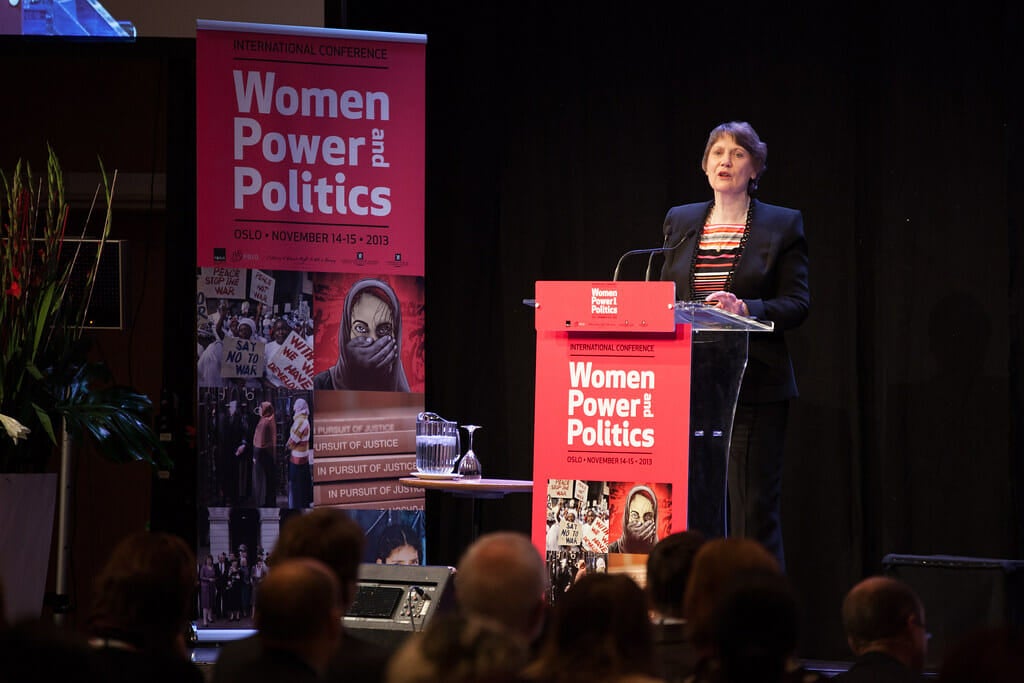 [Helen Clark’s keynote speech at the Women Power and Politics Conference 2013]
[Helen Clark’s keynote speech at the Women Power and Politics Conference 2013]
By my final year in uni, I had represented New Zealand 16 times, despite technically being a foreign student not affiliated with NZ as a nationality.
I was graduating soon, and everyone was approaching their lecturers to get a recommendation letter for their resumes.
But I thought that was rather boring. I looked at a newspaper clipping and saw the Prime Minister of New Zealand, Helen Clark on it. (Jacinda Arden came later in 2017.).
I thought, wouldn’t it be crazy if I could actually get the Prime Minister to write me a testimonial?
I shared my idea with a few friends, who shot it down immediately. “You are not even a Kiwi (a New Zealander), why would our Prime Minister write you anything?”
“Guys, let’s just do this,” I urged, “Let’s apply together! It would be amazing if we got a reply, right? ” But they laughed me off and said it was so outlandish, it would never happen.
So I sat down at my laptop, sent the letter and email to the Prime Minister, and waited.
Two weeks later, I got the letter.
It had the seal of the Prime Minister’s office. And it was signed personally by Helen Clark herself.
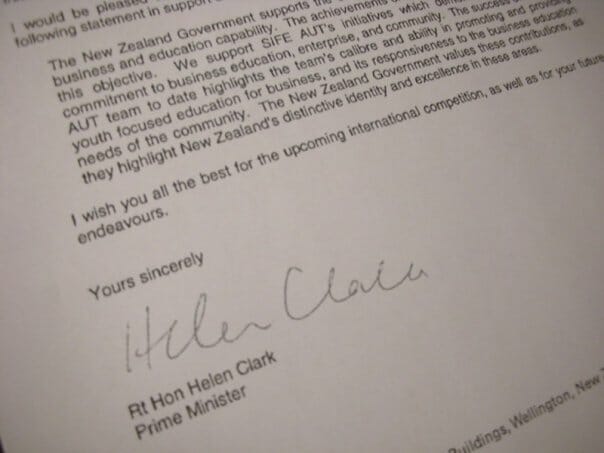 It was a short letter — but it was amazing.
It was a short letter — but it was amazing.
She also forwarded her testimonial to 4 other ministers in her cabinet, and all of them wrote me a testimonial.
When I went back to Malaysia and applied for a job, employers were in disbelief. When they came across the testimonial from Helen Clark, the response was always:
Employer: “Hold on, are you a New Zealander? We don’t hire expats here.”
Me: “Uh, I’m Malaysian.”
Employer: “Really? Why would the Prime Minister of New Zealand write a Malaysian a testimonial?”
And I said: “I worked very hard when I was there. And I just wrote her a letter, and she was so kind as to write me back.”
“Are you serious?” He was dumbstruck.
The lesson here is that a lot of people don’t reach out to other people, because they have a limiting belief that, “Oh, who am I to talk to them? I’m unworthy.”
But what I learnt is this: “Life is better when you have done something than to regret not having done it at all.”
If I wrote to the Prime Minister and didn’t get a response from her, at least I know I’ve tried my luck.
But when she replied, it was a huge win. And that’s kind of how I managed to meet Barack Obama few years later.
How I met President Barack Obama.
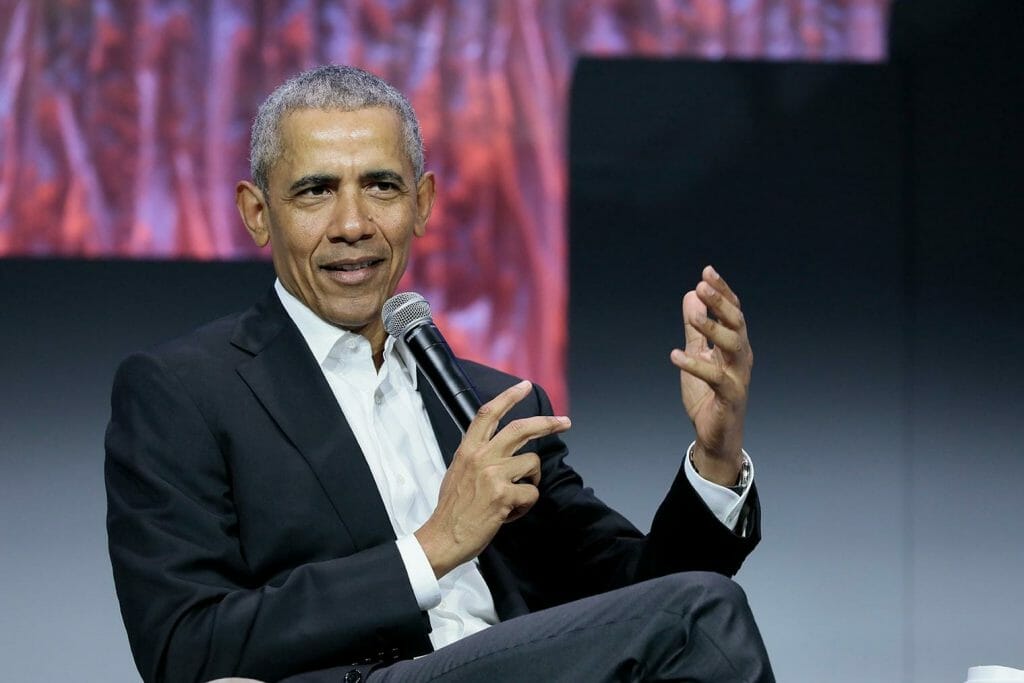
Ever since I started speaking publicly, I really, really wanted to meet President Barack Obama. Even now, after he retired, he’s still my favorite US president. I like him for who he is as a person. He’s one of the most charismatic leaders I’ve ever met.
When I first started out, I wrote letters. In total, I delivered about 11 handwritten letters to the White House.
Guess what happened? NOTHING happened.
2013 came by. I remembered one of the things I learnt: “If something is not working, change it.”
I spammed the White House/President social media accounts, hoping to meet him. (By then, I suspect their social media team actually blocked me already.)
I did that for 2013 and guess what happened? NOTHING happened.
2014 came along. Change strategy again. The only strategy I had left — if spamming won’t work, if letters won’t work — I need to talk to people.
So I kept talking to more and more people. I said, “I want to meet President Barack Obama — Can you help?”
And then 2014 went by. I talked to people from politicians to CEOs. Guess what happened? NOTHING happened.
I’ve exhausted all strategies. There’s only one strategy left that could be used.
My friend told me: “Book a flight to Washington D.C., camp outside of the White House, when the President’s motorcade comes out, throw yourself in front of the car. For sure he will come out and see you.”
And I said: “Most likely get thrown in prison or shot dead la.”
If you come from a typical Asian family, you might have relatives who would say, “If you have a dream ah, don’t tell anybody. If you tell anybody your dream, people will steal your dream.”
I have to disagree. When I told people my dream, they go out of their way to help you.
I kept talking to people, asking for their help.
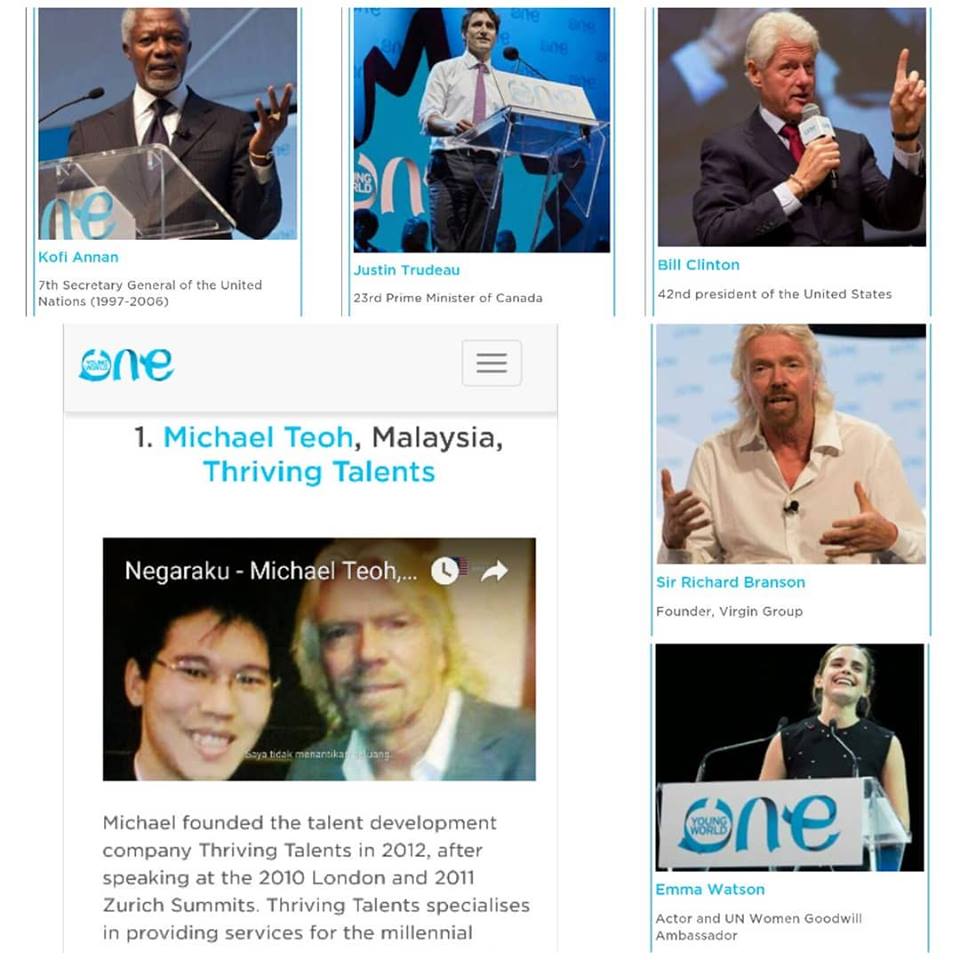
After 4 years of trying my luck, I had already built up a business with Thriving Talents, where we hold training sessions for Microsoft and Sony.
I was fortunate enough to meet Sir Richard Branson and Tan Sri Tony Fernandes, both of whom taught me a lot.
Microsoft was actually our first client starting out. So I mentioned to their executive, I want to meet President Obama.
And he said, “We like you — we’ve been your client and we like the work you’ve done, so let us TRY to arrange it for you.”
“Really? You’d do that?”
“Let us TRY.”
Two weeks from when Obama was slated to visit Malaysia, I got a call from Microsoft. And they told me, “MIchael, we tried our best, we could not secure a meeting for you.”
And I thought, you know what? At least I tried.
But guess what? They offered me something else.
They said, “Michael — we have another offer for you. We will invite the President to a workshop, and you are going to facilitate that workshop for young leaders in Malaysia, are you up for it?”
I was thinking, even if you don’t pay me, I would do it for free.
So I did the training, and Barack Obama came to watch it, and after I finished he came up to the stage to say some words to me and take a photo with the youth leaders.
I was ecstatic.
Barack Obama in person.
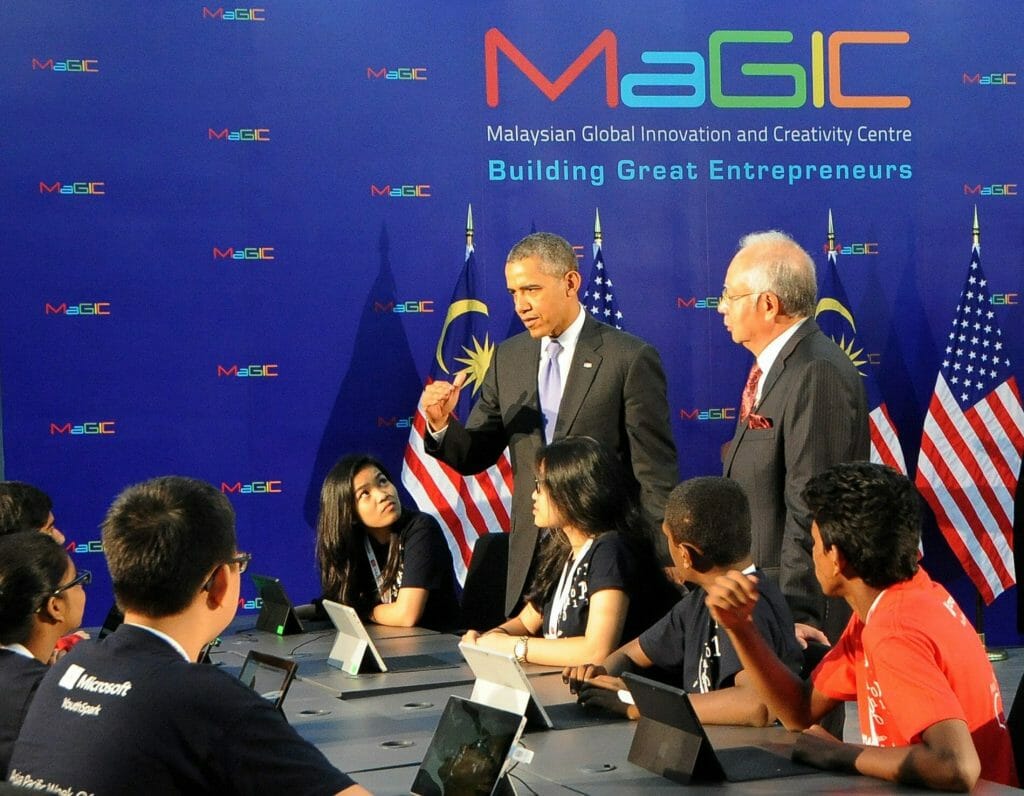
The first thing I noticed about Barack Obama is that he’s really tall. He’s also very charismatic.
One thing I really liked about him was that whenever he speaks to you, it really feels very personal.
He is speaking in a room with at least 30 people, but when he speaks to you, he makes sure that his attention is focused only on you.
And unlike a lot of the politicians I’ve met, he maintains eye-contact, extends his arm to you, nods his head, talks about some of the points he has just heard from you.
And that has made the entire experience totally personalised. He’s absolutely a gem.
It all comes down to this, I believe: You can be a leader through the words you have spoken, but that’s only 20 percent — 70 percent of how people judge you as a leader or not depends on your body language.
If you have an open body language, if you’re approachable; if you have personalised attention to that person, no matter how insignificant that person is, you would have won the hearts of many people.
So that’s something I learned from President Obama.
What I learnt from the experience
Ever since then, we are the only company who has hosted Barack Obama in one of its training sessions.
By the way, I’m not saying this to show off how good we are as a training company —
I’m saying that this is a testament to the fact that with the right mindset, always being adaptable, young people can make a change.
Young people like us can achieve our dreams.
My team was ridiculed for being the youngest team (at 35, I’m the dinosaur). All my team members are really young, but we persevered.
Leaders are not born, leaders are made. I was not born to become a leader, but I think every human being, when we make that one decision to push forward, there’s no turning back.
And we become unstoppable.
Who would’ve thought that this bully victim would have had a chance to rub shoulders with President Barack Obama?
Your past does not equal your future. If something doesn’t work — change it.
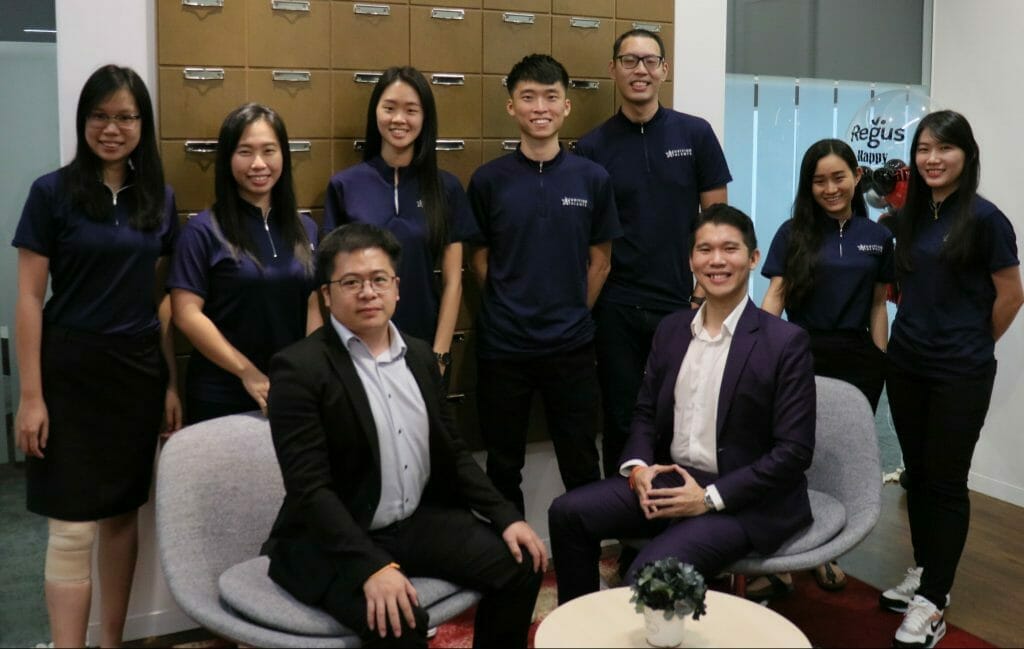
For more stories about Michael, read: Real People: How To Spot A Leader, A Follower, and A Rebel.

You might also like
More from Real Mental Health
“I Was Scared of Waking Up in Handcuffs,” shares Depressed M’sian on Repealed Law
In 2023, Malaysia repealed Section 309, a colonial-era law that made suicide attempts a crime. The change marked a shift …
‘Everyone Saw A Successful Student While I Was Crumbling,’ Shares 22 Year Old Student
This is a story of a 22 year old woman who shared her story as a Straight A’s student as …
5 Harmful Mental Health Myths Malaysians Still Believe
Let’s break down five of the most common myths Malaysians still believe, and why it’s time to let them go.






